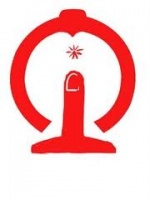“Ministry of Bullying”的版本间的差异
来自China Digital Space
| 第1行: | 第1行: | ||
<h3>''Bàdào Bù'' 霸道部</h3> | <h3>''Bàdào Bù'' 霸道部</h3> | ||
| − | [[File:铁道部.png| | + | [[File:铁道部.png|150px|thumb|right|''Emblem of the former Ministry of Railways. (Source: [https://zh.wikipedia.org/wiki/%E4%B8%AD%E5%8D%8E%E4%BA%BA%E6%B0%91%E5%85%B1%E5%92%8C%E5%9B%BD%E9%93%81%E9%81%93%E9%83%A8 Wikipedia])'']][[File:logo3.jpg|150px|thumb|right|''Parody of the emblem. (source unknown)'']] |
Play on Ministry of Railways (''Tiědào Bù'' 铁道部), the erstwhile government agency notorious first for maddening ticket policies, then for the [[this is a miracle|Wenzhou train crash]]. | Play on Ministry of Railways (''Tiědào Bù'' 铁道部), the erstwhile government agency notorious first for maddening ticket policies, then for the [[this is a miracle|Wenzhou train crash]]. | ||
2016年4月7日 (四) 16:02的版本
Bàdào Bù 霸道部

Play on Ministry of Railways (Tiědào Bù 铁道部), the erstwhile government agency notorious first for maddening ticket policies, then for the Wenzhou train crash.
Controversy about the Ministry of Railways had already stirred in December 2010, when the ministry announced that economy class train tickets would be refunded if the passenger arrived late for his/her train. No similar restriction applied to those who held tickets for high speed trains.
Former Railway Minister Liu Zhijun was investigated for corruption; local ministry officials were alleged to be complicit in the death of a college student on a train; and most significantly, accusations flew that the ministry’s lax oversight allowed the Wenzhou train crash to occur.
The ministry was disbanded during the 2013 National People’s Congress.





